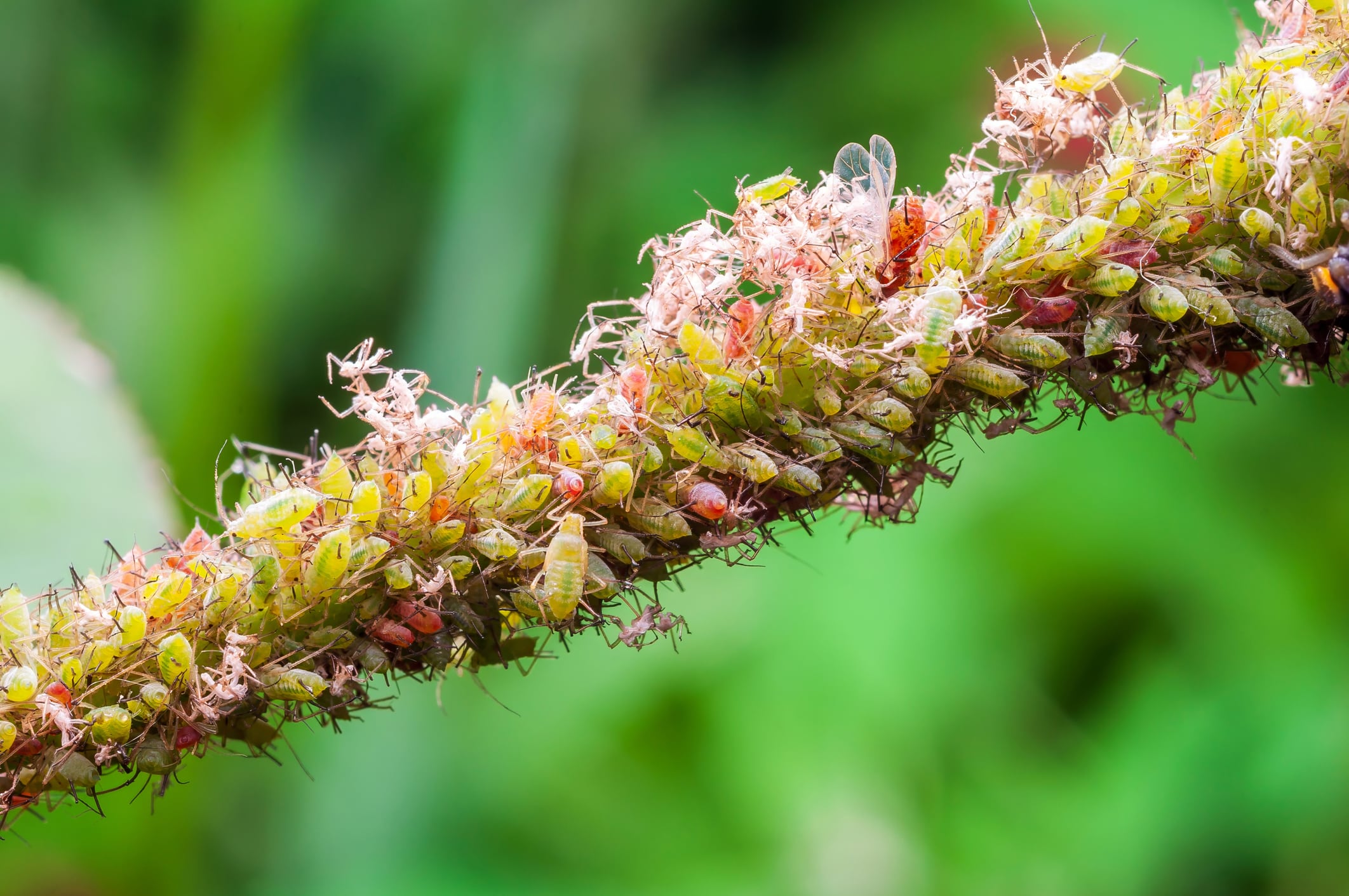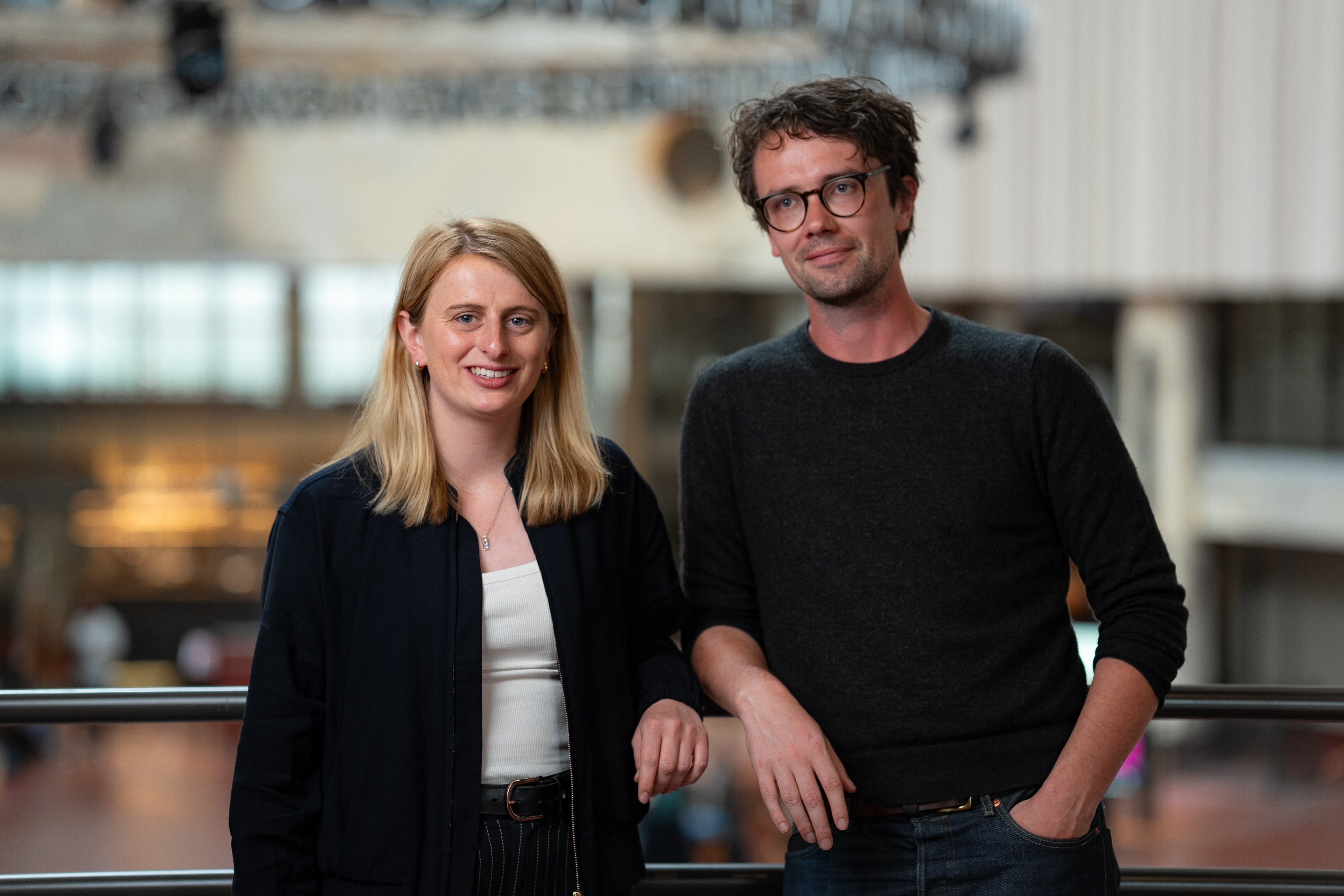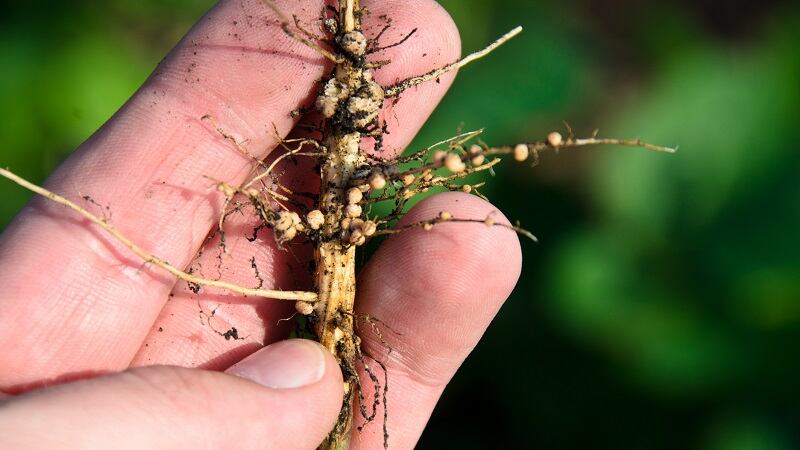Aphids are among the most destructive crop pests, threatening yields of potatoes, sugar beet and oilseed rape across Europe and beyond. BugBiome, a UK-based ag-biotech company, is developing a microbial aphicide that promises to offer growers a sustainable alternative to synthetic pesticides.
“Our bioinsecticides are derived from naturally occurring leaf-surface microbes that have evolved sophisticated mechanisms to deter feeding and colonisation,” explained CEO Alicia Showering.
“These strains are naturally leaf-adhesive, UV-tolerant and stable under harsh field conditions – attributes that chemical and soil-derived biological products often lack.”
BugBiome’s proprietary discovery platform, AvidX, identifies microbial strains based on early behavioural and metabolic disruption signals, rather than just mortality. This approach, Showering says, yields a tenfold increase in discovery rates and better field resilience.
Beyond aphids: A growing pipeline
While aphids are the initial target, BugBiome’s ambitions extend further. The company is building a pipeline that spans major crop pests across geographies. It is developing microbial solutions for pests including Sitona (pea and bean weevils), whiteflies, and cabbage stem flea beetles.
Exploratory programmes are also under way for corn rootworm in North America. “Our platform supports rapid cross-pest validation in both greenhouse and field settings,” Showering noted.

Funding fuels expansion
BugBiome recently relocated from NIAB in Cambridge to Norwich Research Park, following investment from European funds Rockstart and Biotope. The funding will support R&D, greenhouse and field trials, and regulatory work.
Key milestones over the next 6-12 months include:
- Screening 300 new microbial strains and profiling 100 behavioural responses
- Advancing three lead candidates through greenhouse validation
- Launching US field trials in 2026
- Becoming a commercial screening partner for industrial collaborators
Pilot trials are already underway with AgLaunch growers in the US and NIAB in the UK, focusing on aphid control.
Formulation and regulation: The roadblocks to scale
Despite the promise of microbial insecticides, Showering is candid about the challenges ahead.
Biological registration timelines in the EU and UK are long, and standardising efficacy data across variable microbial products is difficult, she said. “Formulation is another bottleneck. Most existing adjuvants and carriers were developed for chemical actives, not biological cells or extracts. This limits compatibility, shelf life and UV or temperature tolerance.”
Microbial products often require cold storage and have narrow application windows, making them less practical for large-scale agriculture. BugBiome is working with regulatory experts to align its data packages with HSE (UK), EPA (US) and EFSA (EU) frameworks.
“The biological sector has lagged due to inconsistent screening methods and an incomplete understanding of how microbial actives actually work.”
Alicia Showering
Reimagining biological discovery
BugBiome’s mission is to make biological screening as systematic and reliable as chemical discovery. By mapping insect behaviour and metabolic responses to microbial exposure, the company aims to unlock new biological modes of action.
“Today, synthetic pesticides dominate because they are predictable and well-characterised,” Showering said. “The biological sector has lagged due to inconsistent screening methods and an incomplete understanding of how microbial actives actually work.
“BugBiome is re-engineering how agriculture discovers and deploys biological pest control. We rapidly identify, classify and develop novel microbial actives, transforming microbial discovery from ‘trial-and-error’ into predictive science.”
With its platform-first, partner-driven approach, BugBiome hopes to accelerate agriculture’s transition away from synthetic dependence toward integrated, sustainable pest management.





